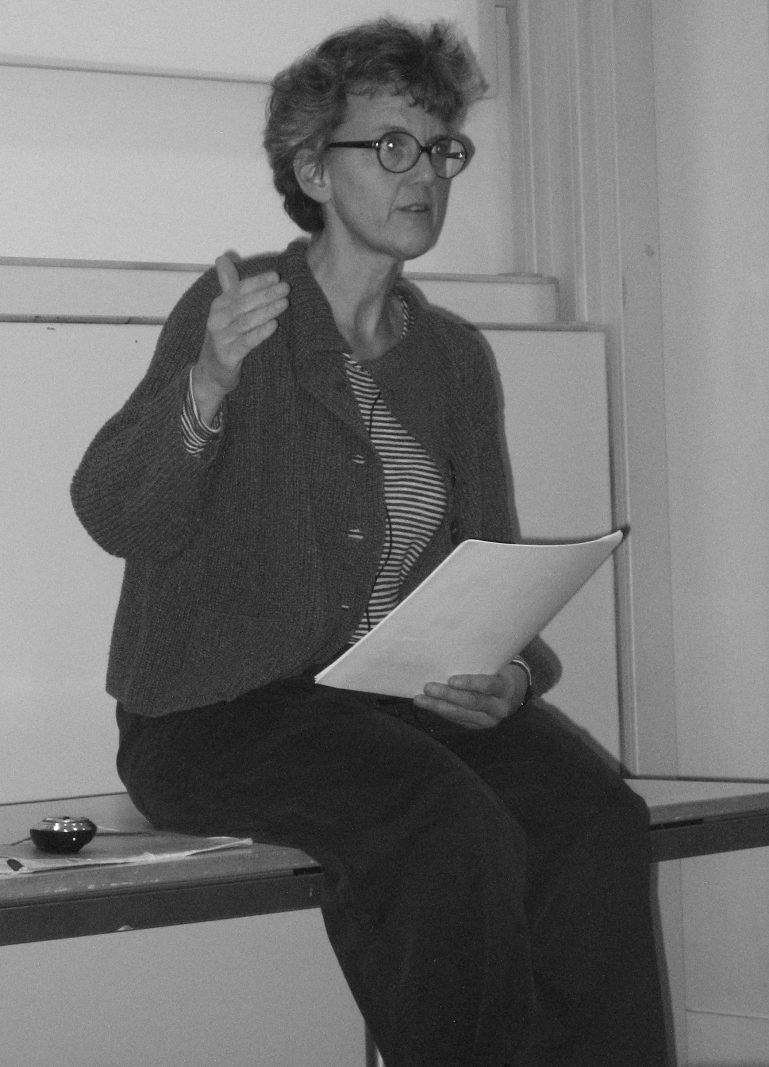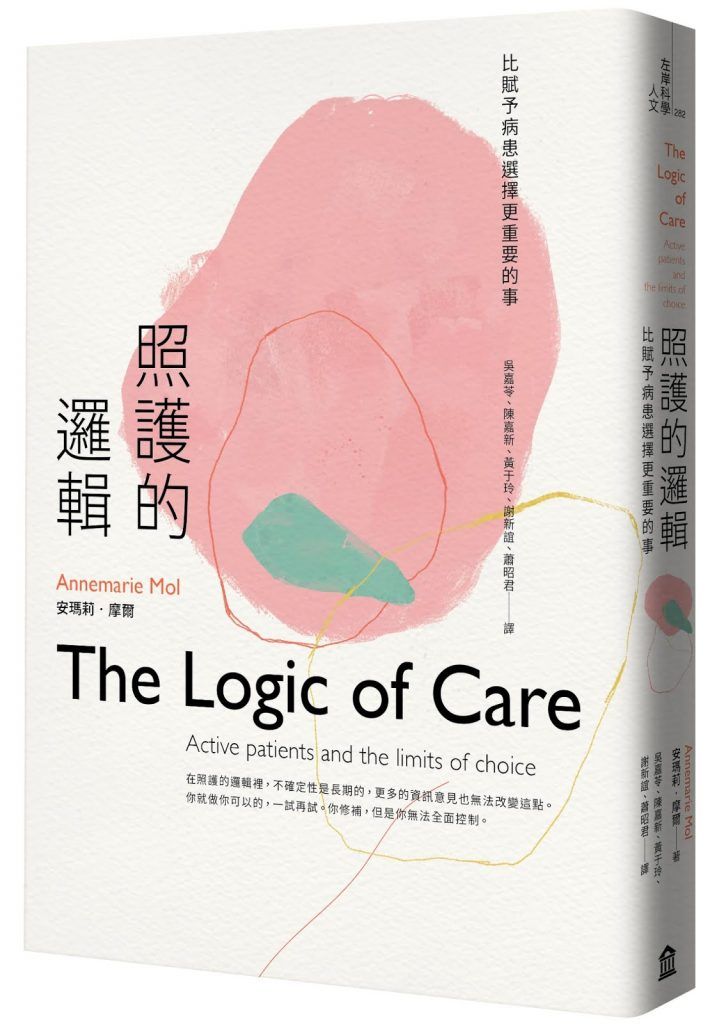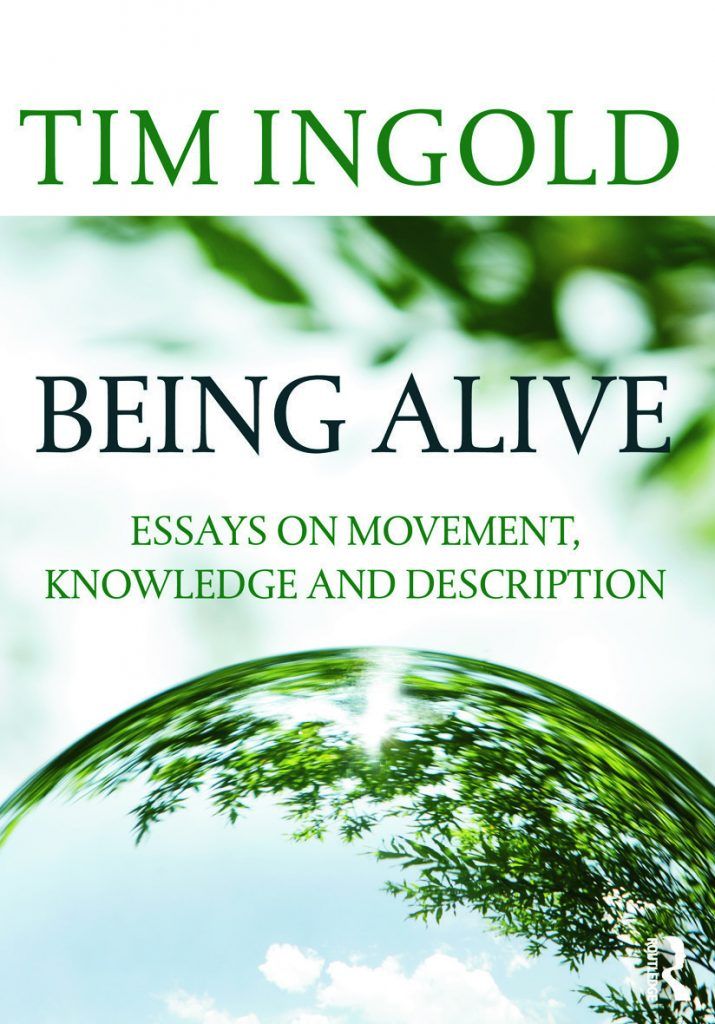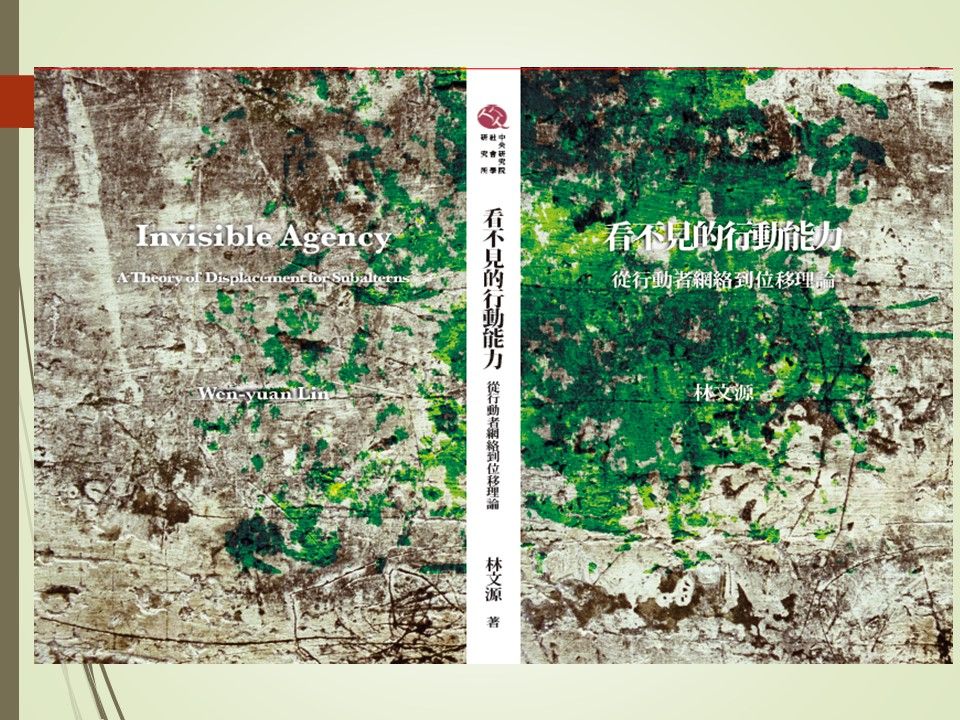165 | 饮食之道:与安娜玛丽·摩尔对谈(A Conversation with Annemarie Mol)

在2021年暑假,结绳志对安娜玛丽·摩尔(Annemarie Mol)最新出版的《饮食之道》导论(上)(下)进行编译,并以此开启了哲学人类学系列专题。熟悉摩尔的学子,或许了解她医学与哲学的双重训练背景,在70年代的乌特勒支,她上午翻阅着福柯与梅洛-庞蒂,下午便在充满福尔马林气味的解剖室中观察女性骨盆。这种不断穿行于概念、器械、叙事与身体的经历,也让摩尔对经验现象与哲学之间松散却有机的互相连接产生了独特的敏锐性。从关注动脉粥样硬化(atherosclerosis)血管病变的《多重身体(The Body Multiple)》到糖尿病护理的《照护的逻辑(The Logic of Care)》,再到如今的《饮食之道(Eating in Theory)》,摩尔始终想要从具体的医疗和照护场景之中,重新唤起读者对存在、认识、行动和关联的理解。
本文为结绳志两位学生朋友文京、美君于今年5月对摩尔进行的一次线上访谈编录稿。在对话过程中,摩尔延伸了她在《饮食之道》的观点,通过阿伦特、英戈尔德、林文源等学者各自的论述明确了自己的理论地图与坐标系,并为中文读者提供了三种阅读的思路。
对谈者 / 安娜玛丽·摩尔、邱文京、陈美君
编辑 / 林子皓
01. 饮食、关怀、反向关怀
文京:《饮食之道》与您前作所关心的问题是否不同呢?您可以告诉我们,为什么选择建立一个关于饮食(eating)的哲学模型吗?
Wenjing: In light of your previous research, do you shift your concentration on the issues around eating? Could you tell us why do you choose to construct a philosophical model of eating?
摩尔:我之所以研究饮食,并非是一个理性选择过程,它更像是在过往研究的基础上再踏出的一步。过去我研究的是糖尿病护理,在认真地倾听过糖尿病患者的采访之后,我开始意识到他们是在用新陈代谢式的机体逻辑来讲述自己的身体。但当我在哲学和人类学的文本里读到身体时,它却不是新陈代谢式的,而是神经肌肉式的。神经肌肉式身体是一种可感知的身体,大多可视物,可行动,却不可进食、耗能、或排泄。我在想,新陈代谢不仅对于糖尿病患者重要,而且对所有人都重要,为什么就这么奇怪地在理论文献中销声匿迹了呢?或者说,为什么饮食只是作为探究身体的前提条件被提及,而不是作为其本身进入身体研究的视野、成为一个有趣的问题呢?如果把饮食之题唤起,会产生何种新的思考?我突然对此感到好奇,索性就继续深入下去。
Mol: It is not a rational process of me choosing ‘eating’. It rather is a next step following on from my earlier research. I worked on diabetes care and when carefully listening to interviews with people with diabetes, I realized that they were talking about their own bodies in a metabolic way. Their concern was about metabolism. In contrast to that, the bodies described in the philosophy and anthropology texts that I had read was not metabolic, but neuromuscular. It was about perceiving, mostly seeing, and about moving, not about taking in food, using energy, excreting. And this metabolism is not only important for people with diabetes, but for everybody. Why then was it so strangely absent from the theoretical literature? Or why was eating only mentioned as a precondition for thinking, not as itself relevant and interesting? And what followed from that? I hit upon that and wanted to know more about it’.
文京:“关怀(care)”这个词在您的书中看起来很重要,因为它在“关联(Relating)”和“行动(Doing)”这两个章节都出现过。在“行动”一章里,它是这样被提到的:“行动具有关怀性质(doing is of a caring kind)【1】”,因为行动是个具有创造性、适应性和修补性的行为。而在“关联”一章里,关怀一词再度出现,但是用在另一观点的表达上。您说,人类需要对世上的其它生灵反向关怀(care back),汲取和给予不是两个可以同时发生的动作,我们不仅不懂如何反向关怀,这种行为的本身也展示出人类与万物生灵间的非对称关系。您可以再多讲一讲您是如何使用“关怀”一词的吗?
Wenjing: The word ‘care’ seems important in your book, for it has occurred both in the chapters of ‘Relating’ and ‘Doing’. In the chapter ‘Doing’, it occurred in the statement that ‘doing is of a caring kind’, because doing is creative, adaptive, and tinkering. And in the chapter ‘Relating’, it occurred again but in a different statement that men need to ‘care back’. Take and give are the two actions which may not take place simultaneously. Not only do we not know how to care back, but caring back itself also shows an asymmetrical relationship between human and other creatures. Could you elaborate more on the difference between two usages of ‘care’?
摩尔:这两种用法有些不同,但相互关联。
Mol: They are slightly different but related.
我一直研究的“关怀(caring)”内含修补(tinkering)之义。在我之前的书《照护的逻辑(The Logic of Care)》(中文版最近刚刚问世)中,我将“关怀(care)【2】”与“选择(choice)”相比较。后者是个自由主义概念(a liberal notion),它假设了所想之事即可实现。而前者在医疗关怀/照护(health care)中,并不是做一个选择就结束,而是体现为长期应对层出不穷的状况,在多种不同可能性之间寻找方向。这种做法我称之为“修补(tinkering)”,由此跳出做一个决定并贯彻执行之的思维模式,而把医疗关怀理解为一个试图与不同的好坏善恶同时缠斗的复杂的过程。
Caring in the meaning of tinkering I worked on a lot. My previous book(recently published in Chinese), The Logic of Care set up ‘care’ in contrast to ‘choice’, which is a liberal notion. It presumes that if you want something, it can be realized. While a lot of the time in health care what people do is not making a choice, but dealing with the circumstances, navigating through what is possible. That I call ‘tinkering’. So, it’s not taking a decision and executing it, but trying to grapple with different ‘goods’ and ‘bads’ at the same time.

在“关联”一章中,我书写的“反向关怀”指向不同的含义。举个养鸡和种苹果的例子。如果你住在乡下,拥有自己的菜园,你可以把厨房的剩菜、一些谷物喂给鸡吃,鸡就会下蛋,你也相应会得到一些鸡蛋,这就是关怀与反向关怀。如果你的菜园里有一棵苹果树,你会除草和浇水,然后苹果树长出苹果,你也可以吃到苹果。这也是关怀与反向关怀。
When I write about ‘caring back’ in the chapter ‘Relating’, this is different. To see what this means think of raising chickens and growing apples. If you live in a village and have chickens in your garden, you give bits of your kitchen waste or grains to the chicken and they give eggs. That is caring and caring back. If you have a garden with an apple tree, you cut weeds around it or give it water when it’s really dry. Then the apple tree gives apples. Again caring and caring back.
然而,如今食物体系的构成已经发生改变。你与我并没有在菜园里养5只鸡,而是其它地方的农民在一座巨大的养鸡场里畜养几百万只鸡。我们可以买鸡蛋,但随之而来的是,我们会缺少反向关怀的意识。大型苹果园与养鸡场造成的影响同理。所以我在想,我们如何可以延续以前的方式,仍旧从其它物种那里得到鸡蛋和苹果,同时反向关怀到这些鸡和果树呢?
However, the way food systems are currently organized is different. You and I do not have 5 chickens in our garden, somewhere else farmers have a few million chickens in a large building. We can buy the eggs, but lack the awareness of caring back. The same with large apple orchards, far away. So I wonder how we can still do that, eating from another species, eggs, apples, and then care back for the chickens and the trees?
文京:我认为,反向关怀同时是一种之于人类的道德实验。您认为我们可以做到吗?
Wenjing: I think caring back is also a kind of moral experiment of our human. Can we do that?
摩尔:当你生活在城市里,也没有菜园和自己的苹果树的时候,这并不容易。有时我们能够考虑去哪儿买苹果以及买哪些苹果。幸运的话,就可以买到从精心照料的田园里、用心栽培的果树上摘来的苹果。但我们只是扮演了一个负责的买家角色,也就是所谓的消费者。“消费者(consumer)”是一个非常有意思的单词,因为在英语里它同时可以是买家和食客。
Mol: It is not easy when you live in an urban setting and do not have a garden, do not have your own apple tree. Sometimes it is possible to at least think about where to buy apples, which apples to buy. Hopefully apples from trees that were well cared for, in landscapes that were well cared for. But that is just acting as a responsible buyer, as a so-called consumer. ‘Consumer’ is a very funny word in English because it is both buyer and eater.
有时,我们也能支持鼓励有机苹果种植的政治决策。但我们在不同的社会环境和时代背景之下,是否拥有其它可供行动的立场选择呢?我或许可以辞掉大学里的工作改种水果,或者资助其它从事这项事业的人,或者以其它可能靠谱的方式。不过这并非本书想表达的;它更想表达的是:如果我们将物种间吃与被吃的关系看作一种关于关怀与反向关怀的问题,我们会从中获得什么新知?我们会因此开始珍视什么,又如何改变我们的理念?
Sometimes it is also possible to support political decisions in favor of growing organic apple trees. But what other actor positions do we have in different societies, at different moments? I could quit my job in the university and grow fruit, or support others who do that. And there are other practical possibilities, but well, that’s not what this book is about. The book rather says: what if we learn if we call the relation between species eating and being eaten a matter of caring and caring back? What do we then come to appreciate, how do we chance our ideals?
文京:可以讲讲您是如何从语言学的角度理解“关怀”一词吗?
Wenjing: Have you examined the word ‘care’ linguistically?
摩尔:英语里“关怀”一词很难一一对应地翻译成欧洲语言里的某个单词。比如,法国人会直接使用英语词“关怀”,因为它同时具有照顾/喜爱(caring for)和关心(caring about)两种含义,而法语自身原本找不到这样的词汇。不同的语言里,单词可以有不同的用处。我想我们不必尝试操控语言,而是可以与它游戏。比如在英语里,我们看到“关怀”一词的含义:即使你不能施控,亦不能使事情如所想的那般发生,但你可以调整自己的行为并持之以恒。“关怀”也意味着关注到他者的需求,就如上述的鸡与树。
Mol: The English word ‘care’ cannot be translated even into other European languages one on one. For instance, the French have imported the English word ‘care’, because it can mean both caring for and caring about and that is not the case with their French word. In different languages words do different things. I think we should not try to tame that, but play with it. In English, we just saw that ‘caring’ can mean that you adapt what you do and keep going, even if you have no ‘control’ and cannot make things happen the way you want them to happen. And ‘caring’ can also mean attending to what others need – what chickens need, or trees.
02. 世界从你的身体穿行而过
美君:我之前在思考,您的著作里的“行动(doing)”这个概念是否涵盖了阿伦特的劳动(labor)、工作(work)和行动(action)三个维度,还是说这两种概念框架不同,并不能这样比较?
Meijun: I was wondering before, does the word ‘doing’ contain all the meaning of Arendt’s labor, work and action or are the concept frameworks just different?
摩尔:(这两个概念框架)非常不同。阿伦特将劳动、工作和行动三者两两对比。考虑到她的研究背景,可以理解她为什么更关注行动,因为行动涉及到在社会中为她认为善好的民主政治建立的公共空间。但为了论证她的主张,她将行动与工作和劳动进行了对比:她说的工作意味着(生产)可持续存在的事物,比如桌子或房子;而劳动意味着照护工作,比如清洁或培植和烹调食物。而且,为了给“行动”辩护,阿伦特并不重视“劳动”;但对于饮食,“劳动”非常重要,没有劳动我们无法生存。所以我书写饮食之道,也是为了提高劳动的重要性。
Mol: They are different. Arendt contrasted labor, work and action with each other. She was, for good reasons, concerned with what she called ‘action’, with having space in a society for the kind of democratic politics that she envisioned as being good. Now, in order to defend that, she contrasted action with work and labor. And with work she meant making durable things, like tables or houses. And with the word labor she meant care work. Caring to grow and cook food, caring to clean. And as Arendt defended ‘action’, she did not think highly of ‘labor’. But for eating ‘labor’ is very important and without labor we do not live. So when I write about eating this is also to better appreciate labor.
接着谈“行动(doing)”这个概念。它在英语中是很奇怪的一个词,因为其它任何的动词都可以被囊括在内,语法中预设了一个人总在进行某个行动,可以是进行呼吸(这个行动),进行阅读(这个行动),进行洗刷(这个行动)——所有的动词都指向行动的某种形式。这意味着如果我们换个不同的方式理解“行动”,它的语义就会发生偏移。不过我认为,对不同概念进行匹配并不是个好方法;在我的研究中,我并不像做地图一样对事物进行匹配,而是追寻路线,从一个实践到另一个实践的路线。
And then there is ‘doing’. That is a weird word in English, because all the other verbs can be put inside it. There is a presumption that one is always doing something. Doing breathing, doing reading, doing washing: all verb point at forms of doing. Which means that if we understand ‘doing’ differently, everything shifts. But no, I don’t think it’s a good idea to try to map words in a box. With my research I do not try to make maps – but follow trails, from one practice to another.
顺便提一下,现在已经有很好的研究阐释了“地图绘制”和“路线追踪”两种概念模式。比如大卫·特恩布尔(David Turnbull)就写了很有趣的著作【3】,他对比了不同的实践:地图绘制想要获得事物的全貌,而路线追踪意味着在大地上的行走,例如澳大利亚原住民的一种跟随路线式的特殊导航方式。地图的绘制成为了全球都在使用的方法,但这不意味着它是普适的方法,或唯一的与空间关联的方式。在路线制作上,我们还有很多可以从(澳大利亚)原住民那里学习;我们可以互相学习而同时接受彼此的差异。
There is, by the way, good work about the difference between map making and trail walking. David Turnbull is an interesting author there, he contrasted these different practices. Map making is about trying to get an overview. Trail making is about walking the land, for instance in the very special ways this is done by aboriginal people in Australia, who have a navigation method that is a matter of following trails. The making of maps has been globalized, it is now done everywhere, but that does not be that is universal, that it is the only way to relate to space. There is a lot to learn for all of us from the way aboriginal people have developed trail making. We can learn from each other without denying the difference.
文京:蒂姆·英戈尔德(Tim Ingold)也讲过地图。
Wenjing: Tim Ingold also have said something about map.
摩尔:蒂姆·英戈尔德写得非常有趣,但是他并不喜欢现代性。他对于行走也写过有趣的内容【4】,但是我持保留意见的地方是,他把行走当成人类行动于世界中的真正方式,而把坐火车描述为不是人之真正所为(not really human)。但如果有人生活在城市里想要行走,但是必须先乘坐轨道交通才能发现好的步行道呢?认为现代性是个错误并不合理,这是一种(过于)怀旧的态度。恰恰相反,如火车出行这样的现代事物,与采集—狩猎者之实践一样,值得被同等重视和研究。
Mol: Tim Ingold wrote interesting things, but he does not like modernity. He wrote interesting things about walking, but my problem with it is that he takes walking to be a true way of moving through the world, and going by train he describes as not really human. But what if someone who lives in a city wants to walk and then first has to take train to find good walking paths? Thinking that modernity is a mistake is not good enough, it is nostalgic. Instead, modern things, like train rides, deserve to be studied as much as the practices of gatherers and hunters.

文京:我有点困惑,因为我在您的书里我看到非常有趣的描述:您说在吃的时候,世界走过你的身体,这看起来是从英戈尔德的“当你行走时,走过的是全世界”之语里得来的灵感。但是看起来您并不是很认同英戈尔德……
Wenjing: Now I am bit confused because in your book, I feel it so interesting when you said while eating, the world walks through your body, and it’s something inspired by Ingold’s work. But now you say that Ingold is…
摩尔:我确实认为英戈尔德讲的行走(walking)是很有意思的,但是我与他有一些不同意见。他写到“存在”时,举行走的例子,他说存在就是在周遭的环境之中移动。这让我想到了,稍等——吃东西的时候,周遭事物也在我的身体中穿行。要是再引申些,不仅是身边的世界,遥远彼岸的某物都会在我进食的时候进入我的身体——500公里外种植的荞麦,从秘鲁或缅甸进口到我居住的荷兰的咖啡,进入到了我的身体之中。而当我在洗手间按下冲水钮时,这些远方事物的碎片残渣就通过水流排到污水系统,由此,又进入到大千世界各个角落。
Mol: I take what Ingold says about walking as both interesting and as a point of contrast. When he writes about ‘being’ Ingold talks walking as an example. For him, ‘being’ is moving through surroundings. That then helps me to say, but, wait a minute, in eating my surroundings move through me. Or, stronger still, not just the world that surrounds me. If I eat, bit of the world from elsewhere enter my body. Buckwheat that grew 500 kilometers further away. Coffee imported into the Netherlands, where I live, from Peru or from Vietnam. They enter my body. And when I flush the toilet, bits and pieces of my body flow along with the water into the sewage system and from there they, again, may end up in all kinds places.
所以,在行走和吃的时候,我们和空间的关联方式是不一致的。但是我们非常有可能既从某位作者那里找到灵感,又同时与之相左!
So in walking a human being relates in a different way to space than in eating. But it is very well possible to be inspired by some author and then also differ from them!
03. 多重本体论后的行动
文京:您是怎么看人类学的本体论转向呢?
Wenjing: What do you think of the ontological turn in anthropology?
摩尔:人类学里有本体论转向,科学与技术研究(简称STS)里也有,只是有些不同。在19世纪的西方里,本体论是指称现实的单词,指向“某物为何(that which is)”;这背后的思路一度是,科学可以接近“某物为何”,却无法真正再现它。并且,从不同面、不同视角观察某物时,会看到不同的样貌。在科学与技术研究里,我们则开始停下来思考:各门科学并不只是在观察,而且在利用技术了解事物;这些技术并非不同的视角,而是在用不同的方式处理和改变事实。因此,与其说只存在“单一本体(one ontology)”,且我们永不可通晓,永不可彻底触及,不如说,各个不同的科学方法都能呈现和实践它们自己的本体论。所以我们继续使用本体论这个术语,但是一百八十度地翻转了知识与现实的关系——从只有“一种现实(one reality)”等待知识的逼近,到不同知识取径生成独特类型或版本的现实。物理学和化学制造着不同的现实类型。外科和内科医学也不相同,因为前者视身体为空间构物组合,后者关注时间及过程。由此,我们就得到了复数的本体论——多重本体论(ontologies)。
Mol: There has been an ontological turn in anthropology, but also in science and technology studies – which is abbreviated as STS – and they are slightly different. In western philosophy in the 19th century, ontology was the word for reality, for ‘that which is’. And the idea was that science could approach ‘that which is’, but never truly represent it. And ‘that which is’ would look different when observed from different sides, from different perspectives. Now, what in science and technology studies we started to say is ‘wait a minute’, sciences do not just observe. They use technologies to get to know things. And these technologies are not different perspectives, but different ways of handling and changing reality. So rather than there being just ‘one ontology’ that we can never quite know, never quite touch, there are different scientific methods that each perform, enact, their own ontology. So we used this term, ‘ontology’ but completely flipped the relation between knowledge and reality. There is not ‘one reality’ waiting for knowledge to approach it, but different ways of knowing each generate their own type, or version, of reality. Physics helps to craft another type of reality than chemistry. Surgery helps to craft another type of reality than internal medicine – for surgery the body is build up out of spatial structures, while internal medicine focuses on processes in time. So we put ontology in the plural: ontologies.
与此同时,人类学家开始使用本体论去讲述人们所生活其中的现实之差异。比如,生活在亚马逊雨林的人不会以西方科学的方式区分“自然”与“文化”。又如,中医里讲人体有经络,一旦堵塞,气血就不能通行。这和外科医学的看法非常不同;外科讲人体有肌肉、血管和神经,这样就可以手术。
At the same anthropologists started to use the term ‘ontology’ to talk about differences between the ways different kinds of people live with reality. For instance, people in the Amazon do not make a contrast between ‘nature’ and ‘culture’ in the way that western science does. Or, in traditional Chinese medicine a body has meridians, and if these are blocked chi does not flow. That is quite different from the body with muscles, blood vessels and nerves in which it is possible for a surgeon to cup.
因此,复数的本体论是种很有趣的观点。不过它也有局限性,有些意思它也无法表达。因为不仅“存在什么”重要,而且如何对待这样的存在也很重要。同样举经络的例子,重点不仅仅是身体由经络还是肌肉和神经组成,还是你要打太极来疏通经络,还是健身锻炼肌肉。在西方传统里,“现实可以是多样的”这件事就难以想象,所以坚持这种多重性很有意义。但我们也不应该停留于“存在(being)”,也要去关心我们何所为(what we do)和如何为之(how we do things)。
So it is interesting to put the word ontology in the plural. But it has also limits, there are things you cannot do with that word. For it is not only important ‘what there is’, but also what you do with it. The point is not just whether a body has meridians or rather muscles and nerves. But also whether you do Tai Chi to open your meridians or rather gymnastics to train your muscles. In the western tradition it used to be unthinkable that reality could be different things, so it was relevant to insist on that. But we should not get stuck in ‘being’. It is also relevant to attend to what we do and how we do things.
文京:我读过卡斯帕·布鲁恩·闫森(Casper Bruun Jensen)的作品《多重实践主体性(Practical Ontologies)》【5】,这篇文章总结了关于本体论的不同观点,从人类学的本体论转向,STS的本体论到政治本体论。他提出,本体论应该从我们的实践中理解。您是怎么看闫森的观点的?
Wenjing: I read Jensen’s work Practical Ontologies, which summarizes different ways of talking about ontology, from ontological turn in anthropology, ontology in STS to political ontology, and he argues that ontology should be understood in our practices. What do think of Jensen’s viewpoint?
摩尔:我认为我的观点实际上和闫森非常相近,但是这本书里我想做的一件事,也是在我的学术研究中想做的,就是处理术语(fix terms)。我并不想建立一套本体论观点,去说它究竟是什么,而是想将其中的术语理解为工具。这样我就会问:如果我们使用这个词或那个词会了解到什么,要是使用一个词但是用这样或那样的方式又会如何?如果我们能将术语想成某种工具,那么它们将会具有不同类型的优势。
Mol: I think my position is actually very close to Jensen, but one of the things that I try to do in this book, and also in my work, is to fix terms. I don’t want to establish what ontology is, truly. But rather understand terms as instruments. So I ask: what do we learn when we use this word or that other word; what do we learn if we use it in this or that way? If we understand terms as a kind of tool, then they can all have different types of strength.
这种做法不仅适用于像“本体论”这样的术语,也适用于来自不同语言的词汇。去年,我和约翰·劳(John Law)共同编辑了一期杂志,也是一本书,《论他者的术语》(On Other Terms)【6】。其中两篇文章展示了无法用英语表达的汉语术语。我也写了一篇关于荷兰语的。如果你问语言学家的话,就知道荷兰语和英语是很接近的。但即便如此,荷兰语也有无法用英语完全对应的词汇。我用一个荷兰语单词schoon举例【7】,当我说schoon时,可能表达的与英语里的第一种译法——“干净”的意思毫不相干,因为“schoon”不仅是英语中说的“干净”,而且也是英语中说的“美丽”。此外,当我用荷兰语写作时,我会联想到不同的记忆、文学、歌曲或习惯等。所以不仅仅是像“本体论”这样的哲学术语是能联结不同涵义的工具。那些日常生活用语,就好比“opening up”(打开), “closing”(关闭)和“inviting”(邀请),它们都是在不同语义方向上忽此忽彼地迁跃。
This does not just go for terms like ‘ontology’, but also for words from different languages. Last year with John Law, I co-edited a journal issue, which is also a book, On Other Terms. There were two contributions that presented Chinese terms that help to say things that cannot be said in English. And I wrote about a Dutch word. Dutch is very close to English, if you ask linguists. And even so, if I use the Dutch word schoon, I make a different cut that if I use the English word that is its first translation, clean. For instance, ‘schoon’ is not just what the English call ‘clean’, but also what the English call ‘beautiful’. Also, when I write in Dutch, I related to different memories, literature, songs, or habits, and so on. So not just philosophical terms, like ‘ontology’, are relevant tools. We also think with daily life words, such as ‘opening up’, ‘closing’, ‘inviting’. They all pull and push in the one direction or the other.
因此,没有哪一个术语或理论是放之何时何地而皆准的。关键就在于,在这一时刻、这一地点与境况,你拥有何种关切。我们不必去服务于理论,理论应该服务于我们。因此,保持疑惑很重要,并去提问这样或那样的一个词能有助于我们理解什么。用另一个词或许更好吗,或会发生什么?最好的办法就是玩转单词,用严谨而轻松的方式,然后放开这个单词,继续和其它单词游戏。我们不必把理论看得过分沉重。
So, no single term and no single theory is good always and everywhere. The question is what kind of concerns you have at a certain moment, in a certain site and situation. We don’t have to serve theory, theory should serve us. So it is important to keep asking what this or that word helps us to understand. And to ask: Might it be better to use another word? What do you see then? It is best to play with words, seriously, but lightly, and then let them go again, and play with other words. We don’t have to take theory too heavily.
04. 作为跨文化相遇的阅读
美君:这也很好地对应了我们将要问的关于文化视角的问题。从我个人对这本书的阅读体验出发,我总在想,为什么我们总要在学术对话里提起一个理论,然后反击它?似乎从一种“中国的文化视角”,从一开始就没有这么做的必要。您在如何把这本书的理论与非西方读者联系起来这个问题上有什么想法?比如说,它会对一个像我这样在中国长大却仍与“西方”社会有一定关联的人意味着什么?另一个问题是,您会如何在当今的全球化社会中定位您的理论?在所谓的西方社会中已经有不同的视角与现实感知;我们是否可以在不同的情形下调整理论的框架?
Meijun: I think that also fits quite well with them cultural perspective, the questions and we’re about to raise. From my own experience of reading the book, I was thinking, why should we always bring up one theory in the dialogue and then we say something against it? Seems that from a ‘Chinese cultural perspective’, that is not needed in the first place. Is there anything interesting about how to relate the book’s theory to non-western cultures; how relevant would it be to someone, for example, like me who grew up in China, but also has some relationship with the ‘Western’ society. Another point is, how to situate these books in a globalized society? There is already kind of a mixture of perceptions, perspectives, and reality. Can we adjust our thinking for different cases? What do you think?
摩尔:这是一个很好的问题。我不知道你是如何理解这本书的;我也想了解你的看法。
Mol: Well that’s a very good question. I don’t know how this book is for you. I would want to learn about that from you.
不过让我这么说吧。我试图做的一件事情是“剖开(open up)”我们所谓的西方。西方的传统并不是连贯的。西方主流的哲学传统认为饮食是低级的,而这同时意味着他们使得女性、农民和厨师这些让饮食变为可能的人被迫沉默。在西方哲学中,思考是高级的,饮食是低级的。这不意味着饮食在“西方”就是低级的;对于妇女和农民来说它从不低级,但他们并不著书立说。在我这一代人里,女性可以写书;作为一个女性主义者,我可以为那些被边缘化、被西方传统最主流的声音视为低端的事物发声。不过那些主流的声音一直在那里。
But let me say this. One of the things I am trying to do is opening up the so-called West. The Western tradition is not coherent. It is not one thing. The dominant philosophical tradition in the West has downgraded eating. But that means they have also silenced women and farmers and cooks, who labor and do all the work that makes eating possible. In Western philosophy thinking was high, and eating was low. But that does not mean that it was low in ‘the West’ – it was never low for women and farmers, but they did not write the books. Now in my generation, women can write books. And as a feminist I can speak up for things and activities that were marginalized and considered low by the loudest voices in the Western tradition. But they were there all along.
对于这本书能带给你怎样的启发这个问题,我想你可以用不同的方式阅读这本书。一种方式是,在读的时候提问,“等等,那在中国儒家哲学里以君主为上的等级制思想中,这个主题是如何被讨论的呢?是否和这本书里所写的类似?”那也是一种等级制,但它(与西方思想)有些许不同之处。所以,你可以用这本书去发问,比如说:在古典希腊哲学和传统中国哲学的等级制思想中,有什么类比、相似点和不同点?当然,如果你想回答这个问题,你需要读很多中国哲学的著作;你很难从文化环境中耳濡目染到这些。
For what my writing can mean to you, I guess you may be able to use it in different ways. One of the things you can do is to wonder when reading this is, “wait a minute, what about the classic hierarchy between the ruler king in Chinese Confucian type of philosophy? Was that similar or not?” It was also a hierarchy, but it was slightly different. So you can use it to ask questions, like “what are the analogies, similarities and the differences between the ancient Greek philosophy hierarchy and traditional Chinese philosophy”. Of course if you want to do that, you have to read a lot about Chinese philosophy as well. You can’t just know this from growing up in your culture.
另一种你可以读这本书的方式是,把它当作关于西方的一本民族志。一种在现代主流的想法是,理论是普适的,而经验研究是地方的。这样一来,理论应该能够普遍应用,而经验描述能够告诉我们关于其它地方的情况。但我认为,理论并不能或并不应当成为普适的。理论总是处在特定的实践之中,又回应着某种特殊的关切。我在这本书里想与之保持距离的那些哲学家,都关注着20世纪席卷欧洲的暴行灾祸:杀害了无数人的纳粹,以及苏维埃的古拉格集中营。这对于那些哲学家们而言是实实在在的问题,所以他们努力去接受暴力事实的存在,并回应这样的现实关切。在本书,我努力回应的是另外的关切,其中最为重要的是我们目前全球都在面对的生态问题。这个问题关乎现下,紧迫且非常重要。
Another way you can read this book, so far as I’m concerned, is to take it as an ethnography of the West. A dominant modern idea is that theory is universal, while empirical research is local. Then theory should be able to travel everywhere and empirical descriptions teach us about other places. Now, my book is among the studies that try to undo that particular division. I don’t think theory can be, or should be, universal. Theory is always situated in particular practices, it speaks to particular concerns. The philosophers that I try to take distance from in the book were all concerned about in the violence that plagued Europe in the 20th century. The way the Nazis killed millions of people; the Soviet Gulag. That was real concern here and philosophers were trying to come to terms with that, respond to that. In my work I am grappling with other concerns, most importantly the ecological issues that all around the world we are facing. That is pressing, highly relevant, here and now.
我们刚刚在谈如何阅读这本书,那么现在我提供第三种方式,这种方式需要我们去关注生态问题。虽然理论可能不是普适的,但生态问题是全球化的,它在不同的地点呈现出不同的形态,没有人能够回避这个问题。你可以将这本书作为起点,并想:“她提供了这些可以应对生态问题的工具。在我的文化包裹里有没有其它工具也可以解决问题?如果有,我们如何一起使用它们?”我很喜欢你的看法的一点是,西方的各种理论总是在互相争斗,要么这个理论是对的,要么那个理论才是对的。这当然并不一定是唯一的或最好的处理差异的方式。我刚才提到的《论他者的术语》(On Other Terms)这本书里,作者林文源【8】提到,与其坚持互相争斗,不如尝试注重平衡。他借用了传统中医的平衡概念,以其作为另一种关联事物的方式。我从那篇文章中明白了很多。它为我们呈现了在学术中,对话而非争论将会是怎样——对话会带来希望。
We were talking about how you can read this book. Now here is a third way. It has to do with those ecological problems. Theory may not be universal, but the ecological problems we are facing are global, they take different shapes in different sites, but nobody escapes from them. So taking that as you starting point, you can think, “she’s offering these tools to face ecological problems. Are there in my culture baggage other tools that may help with that? And, if so, how can we use them together?” What I really like about your remark is that Western theory is often set up as a battle. Either this theory is right or that theory is right. That is of course not necessarily the only, or the best, way to handle difference. In the book On Other Terms that I just mentioned, there is a text of Wen Yuan Lin who suggests that rather than insisting on fights, on war, it is possible to foreground balance. He takes the word balance out of traditional Chinese medicine as another way of relating. I learned a lot from that text. It suggests what it is to have conversations instead of controversies. And that is promising.

即使我们不再执着于普适的理论,把理论固缩于各自的角落也并不是好的解决方法。我们不应把每个人局限在自己的文化里。比如,有的人可能会说,“平衡”是中国的文化概念,所以我不应该碰它;或者你是中国人,你就必须使用平衡的概念。不是这样的!让我们开始沟通吧;沟通在没有人预设自身立场的正确性时,才是最有效的。这同样也意味着,如果你问我“我应该怎么阅读这本书”时,我的回答是:我怎么会知道?我可以提供一系列阅读的方式,就像我刚刚做的那样。但我想要从你这里学到新的东西。我把这本书置于对话之中。我不觉得所有书中的理论都能对你有用,但我希望你能从书中摘出一些东西并说,噢,这个想法很有趣。这可以是一个问题,也可以是一个概念。
For if we no longer want universal theory, it is also not a good idea to each hide in our own corner. We should not enclose everyone in their own culture. And then say, for instance, balance is Chinese, so I can’t touch that. And you have to do balance, because you are Chinese. No! Let’s have conversations. That works best if nobody starts from the position that they are right. And that then also means that if you ask me, how should I read this? My answer is: How can I know? I can give a list of ways of reading, as I just did. But then I want to learn from you. I put this book into the conversation. I don’t think it is all going to work for you. But I hope you might pick out some things and then think oh, hey, that’s interesting. Either a question, or a notion.
或者你也可以这么回应:“这个古怪的西方人真的这么想吗?”我很好奇你会怎么说。这个问题也可以引申到所有正在读这篇采访的人——读者们!如果你在阅读《饮食之道》,你会如何回应?这个“回”并不一定是回击,而可以是你在它的基础上建立自己的观点或者改变它,从它这里获取有用的东西,然后继续走自己的路。你还可以将它与你有的东西合并。“中华文化”当然是博大的,它同样有许多内部的张力,你可能在这个特定的思想传统里,进行这样的对话:突出好的事物而隐弃不那么好的事物。
Or you respond by surprise as in: “does this weird Westerner really think like that?” I’m curious what you would have to say. And this question stretches out to the readers of the journal in which this interview will be published. Readers! If you read Eating in theory – what would you say back? The ‘back’ doesn’t have to be how do you want to fight back, but how do you build on it, shift it, take something from it and run. And combine it with things from your own baggage. “Chinese culture”, of course, is huge. There, too, you have all kinds of internal tensions and you might have conversations in which you foreground the good things and tone down the less good things in that particular intellectual tradition.
那么,感谢你们的问题,以及听我说了这么久!
For now, thanks for your questions. And for listening so long!
对谈后记
美君:收到摩尔的回复邮件时是十分惊喜的,没有想到她真的能够在百忙之中抽空给一个她并不太了解的中文人类学媒体采访机会。摩尔的观点并没有给人犀利之感,却也同样有力;并不在假设、证明和例外之间徘徊,而是以一种谦卑的姿态在混沌中做出理论探索的尝试。理论本身在她的书里呈现了一种如她所说,“如折叠在木盒中的丝绸”般的形态。
《饮食之道》之书本身基于深刻的学术传统,却深入浅出,对于我这个人类学非专业从业者也很好理解。摩尔也不拘于学科方法与视角,做出了非常有生命力的研究。对我自身而言,重要的是思考能够为生活带来自觉,理论能够与实践进行直接的互动。跨文化的生活经验和在欧洲接触到的消费者责任思潮让我对摩尔的研究中文化视角感兴趣;也很高兴能够听摩尔亲自讲述她对于跨文化的思考与方法。
我个人的专业背景是本科为热能与动力工程,研究生为能源系统转型相关的经济模型与政策研究。在“可持续发展”大主题下的能源转型和摩尔所关切的生态问题有些许相关,摩尔的视角能够让我们对于某些能源转型的手段提出批评:大量生产太阳能电池板、电池,是否依然遵循索取的工具逻辑和与煤炭能源一脉相承的工业结构,还是说我们能够在“反向关怀”的角度上重新探索生存方式?
文京:一开始是冲着“饮食”二字去读这本书的,结果发现这本书并不能算是食物人类学,而是通过饮食反思西方经验哲学,加上摩尔的研究领域涉及医学人类学,所以一部分关于进食的民族志描写就是来自于她在医院诊所的田野调查。这本书是一个很难得的尝试,难得地从身体、现象学的角度系统地思考饮食。在访谈中, 摩尔很关心价值观(value)的问题,但对于饮食之种种是善是恶,给予了开放式的回答——因情境的变换产生不同的善与恶(goods and bads)。
我和美君是在结绳相遇的,之前了解到她从工科转到经济政策研究,但是对于人类学很感兴趣,希望可以结合能源与人类学。这回做这本书的访谈,我们俩做了一段时间的准备工作,感觉她读书很快,因为英语比我好,对于细微之处的理解也好于我。我的优势就是对于摩尔的表述方式较为熟悉,包括对她提到的各路大佬稍有了解,所以可以贡献一点关于思想背景的理解。我们的前期操作顺序就是通读全书,讨论疑问、初步确定访谈重点,给老师发邮件约采访,每人领几个章节去重读、确定自己感兴趣的问题,确定采访问题。基本每步都要一周左右的时间留给彼此去准备。与美君的每次碰面我都很激动,虽然仅仅隔着屏幕看到美君,但是越来越熟悉了起来。
这个访谈能够完成,离不开摩尔本人的积极支持。老师能够慷慨地留给我们两个学生一小时的访谈时间,并且在访谈之后,即便我们的采访稿整理耽搁了月余,她依然能够在假期亲自帮我们校稿,一些难懂的细节也是因老师的帮助得以理解。我和美君各自听校录音稿,交换修改,在后程邀请靠谱的子皓加入,帮我们再度订正。终于,这篇稿件要跟大家见面了。因为时间太久,所以激动稍减,多了种合作完成一件有难度的事情的快乐。
注释:
【1】‘Eating is a task that is difficult to achieve but that, by creating suitable circumstances, and with the support from others, may yet be accomplished. The doing staged in this way is not confined to a moment—of choice—nor is it linear—like a causal chain. Instead, it is of a caring—iterative, adaptive, tinkering—kind.’ pp.8
【2】此处翻译为关怀,区别于仅医疗场景下的照护行为,然而包含医疗关怀/照护之义。
【3】见David Turnbull. 1994. Maps are Territories: Science is an Atlas. Chicago: University of Chicago Press. ISBN-13: 978-0226817057.
【4】见Ingold, T. (2011). Being alive: Essays on movement, knowledge and description. Routledge.
【5】见Jensen, C. B. (2021). Practical Ontologies Redux. Berliner Blätter, 84, 93-104.
【6】见Annemarie Mol & John Law, ed. 2020. The Sociological Review, Vol. 68, Issue 2.
【7】见A. Mol. Not Quite Clean: Trailing schoon and its resonances. The Sociological Review, 2020(4). pp. 385–400. DOI: 10.1177/0038026120905489.
【8】见Lin, Wen-yuan. “War and balance: Following shi and rebalancing militant English-language knowing apparatuses.” The Sociological Review 68.2 (2020): 341-355.
访谈者简介
文京,生物转人类学的半科班生,坐标北京
美君,工科背景的人类学爱好者,坐标苏黎世
最新文章(持续更新)
156. 酸的艺术:波斯视觉与物质文化中的柠檬
157. 开放获取:美国人类学协会期刊出版的未来
158. 哲学人类学 | 黑格尔与海地(下)
159. 动物农庄:垄断资本时代的动物园
160. 没有女人,你就无法理解古兰
161. 电力书单 | 一份应急充电宝
162. 结绳故事绘(2)
163. 在灭绝时期照护隼
164. 世界精神健康日,让我们来谈谈care
165. 饮食之道:与安娜玛丽·摩尔对谈(A Conversation with Annemarie Mol)
喜欢我的作品吗?别忘了给予支持与赞赏,让我知道在创作的路上有你陪伴,一起延续这份热忱!



- 来自作者
- 相关推荐